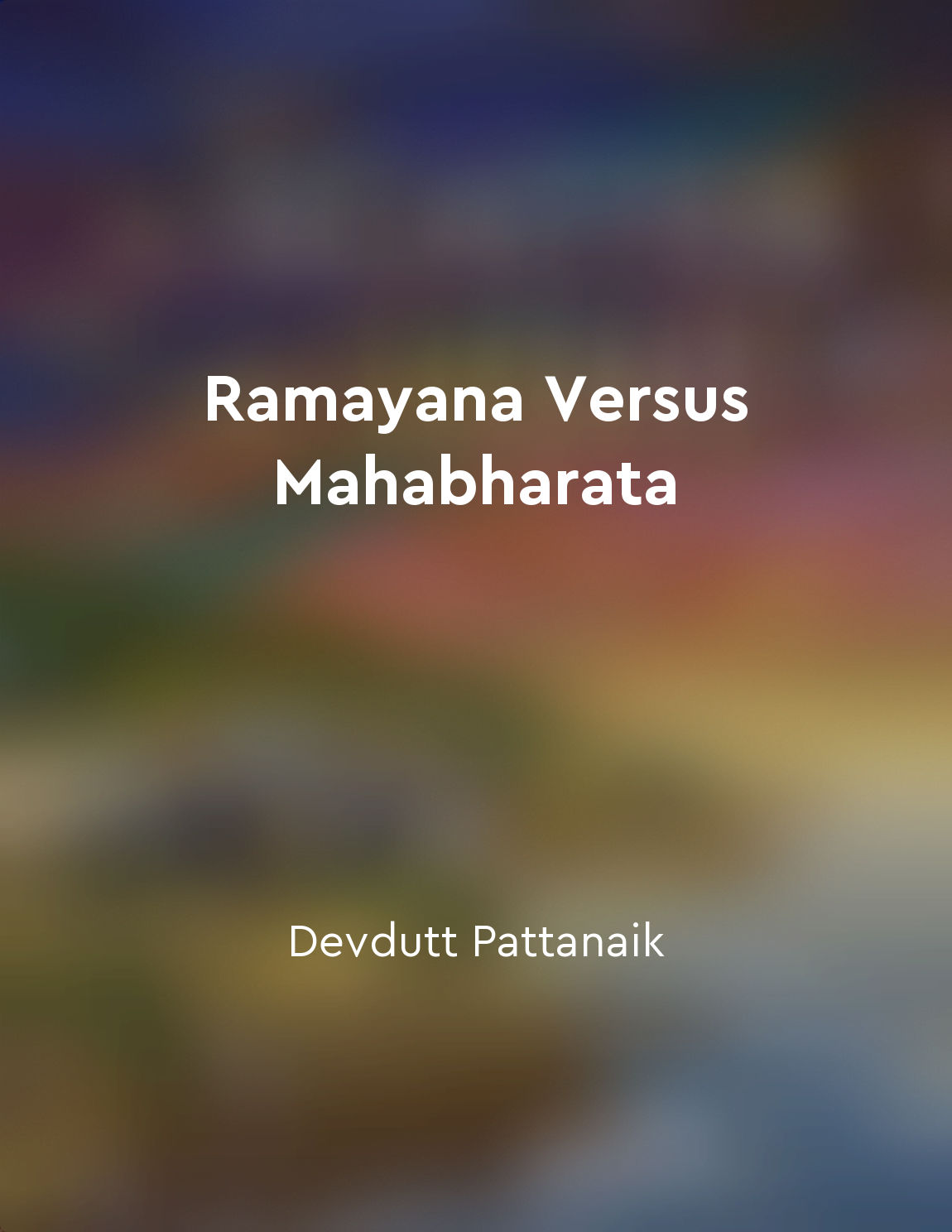Ramayana's Yuddha Kanda is battle, Mahabharata's Bhagavad Gita is philosophical discussion from "summary" of Ramayana Versus Mahabharata by Devdutt Pattanaik
In Ramayana's Yuddha Kanda, the story reaches its climax with a great battle between Rama and Ravana, highlighting the epic's focus on the theme of dharma and righteousness. This battle serves as a physical manifestation of the moral conflict between good and evil, with Rama representing the forces of righteousness and Ravana embodying the forces of darkness. The Yuddha Kanda is filled with descriptions of valor, heroism, and sacrifice as the characters engage in combat to uphold their principles and fulfill their destinies. On the other hand, Mahabharata's Bhagavad Gita is a philosophical discussion that takes place on the battlefield of Kurukshetra, just before the great war between the Pandavas and Kauravas. Unlike the Yuddha Kanda, which primarily focuses on the physical aspects of battle, the Bhagavad Gita delves into the inner struggles and dilemmas faced by the characters. The dialogue between Arjuna and Krishna explores complex philosophical concepts such as dharma, duty, and the nature of existence, providing spiritual guidance and moral insights to the readers. While the Yuddha Kanda showcases the external conflict between opposing forces, the Bhagavad Gita delves into the internal conflict within the individual soul. Through the teachings of Krishna, the Bhagavad Gita emphasizes the importance of self-realization, detachment, and devotion to one's duty. The philosophical discussions in the Mahabharata serve to enlighten and inspire the reader, encouraging them to reflect on the deeper meaning of life and the pursuit of spiritual truth.- The Yuddha Kanda of the Ramayana and the Bhagavad Gita of the Mahabharata offer distinct perspectives on the themes of battle and philosophy. While the former highlights the external struggles of righteousness against evil, the latter delves into the internal struggles of the human soul in its quest for spiritual enlightenment. Both epics complement each other in presenting a holistic view of life's challenges and the eternal quest for truth and righteousness.


